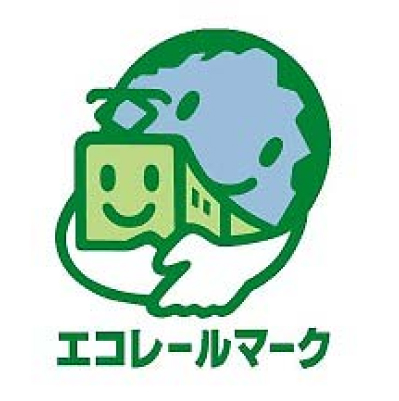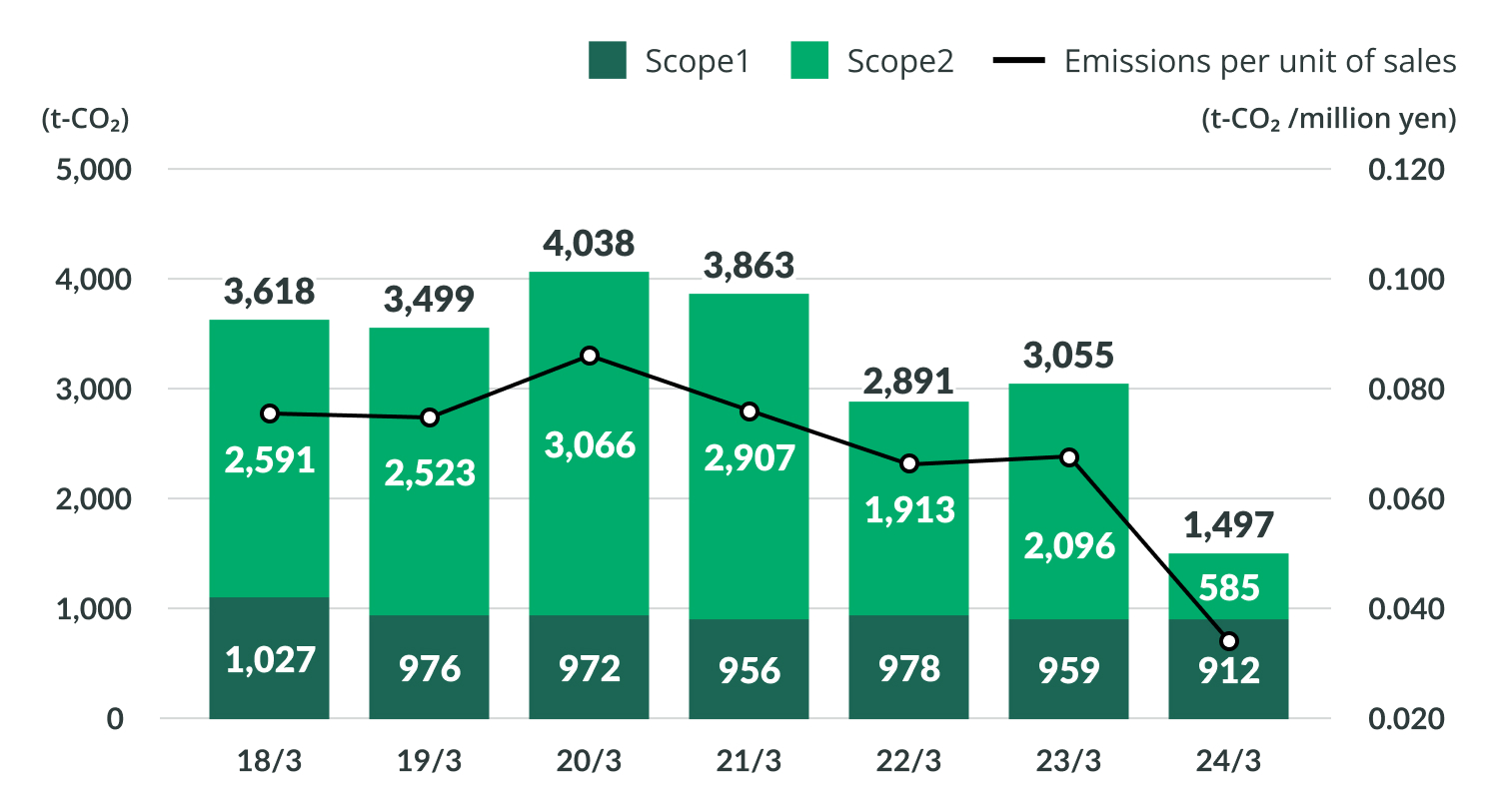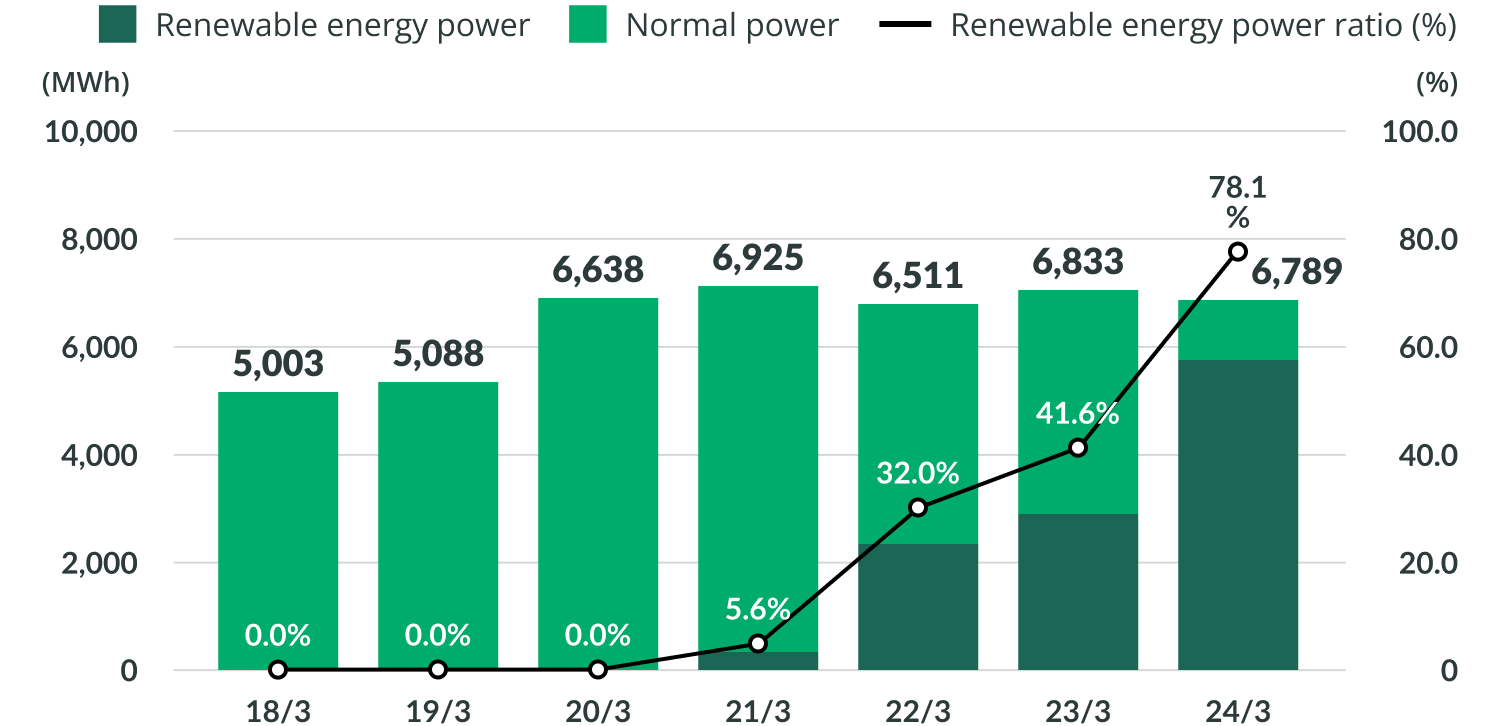Climate Change
Reduce CO₂ Emissions Activities
Our group has set goals related to climate change and resource recycling as material issues in order to achieve the goals of the Paris Agreement and SDGs. Regarding climate change, we will work to reduce CO2 emissions, promote the purchase of electricity generated from renewable energy, and aim for zero carbon by 2050.
| FY 3/27 | FY 3/50 | |
|---|---|---|
| Climate change | Disclosure of Scope 3 emissions | Realization of carbon neutrality |
In FY 3/2025, CO₂ emissions amounted to 913 t-CO₂ for Scope 1 and 114 t-CO₂ for Scope 2, with total CO₂ emissions amounting to 1,027 t-CO₂, contributing to a 31.3% reduction from the previous fiscal year. The ratio of electric power derived from renewable energy to the electric power purchased at our production sites and offices was 96.3%, contributing to a reduction in Scope 2 (market-based). We have actively promoted the shift to electric power derived from renewable energy, and the start of procurement of electric power derived from renewable energy at Tochigi Plant (S.T.MYCOAL, CO., LTD.) has contributed to the reduction of Scope 2 emissions.
In FY 3/2026, we have been considering and implementing measures to reduce Scope 1 emissions, such as switching from fossil fuels like gasoline and diesel to electricity and improving energy efficiency.
Regarding the calculation of Scope 3 emissions, in preparation for the disclosure of Scope 3 emissions in FY 3/2027, we roughly estimated GHG emissions in major categories for FY 3/2025 and identified high-priority reduction hotspots. Since Category 1 (Purchased goods and services) and Category 12 (Disposal of sold products) generate a large amount of GHG emissions, we will consider ways to reduce the environmental impact (GHG emissions) through product design.
In terms of transportation and delivery, we are working to improve loading efficiency by revising standards for the size of truck cargo boxes, as well as promoting delivery efficiency through joint delivery with other companies and factory direct delivery. We are propelling a modal shift from truck transportation to railway and ship transportation, which have a lower environmental impact. S.T. corporation acquired “Eco-Ship Mark*1” certification in 2008, and its factory in Kyushu acquired “Eco Rail Mark*2” certification in 2015.


*1 Eco-Ship Mark system: A system promoted by the Maritime Bureau of the Ministry of Land, Infrastructure, Transport and Tourism to select companies that contribute to a modal shift by using marine transportation to a certain extent.
*2 Eco Rail Mark system: A system promoted by the Railway Bureau of the Ministry of Land, Infrastructure, Transport and Tourism to select companies that contribute to a modal shift by using railway freight transportation to a certain extent.
Total CO₂ emissions (Scopes 1 and 2)

*The subject organization is S.T. Group (domestic).
*Total CO₂ emissions mean the sum of Scopes 1 and 2.
*The figures are rounded down.
Procurement trends in renewable energy power

*The subject organization is S.T. Group (domestic)
Response to the Task Force on Climate-related Financial Disclosures (TCFD)
The S.T. Group has declared its support for the Task Force on Climate-related Financial Disclosures (TCFD),and based on the TCFD recommendations, the S.T. Group is working to address climate change issues. In 2022,regarding climate-related impacts (risks and opportunities) on our company, scenario analysis (qualitative evaluation) was conducted for the 1.5°C–2°C scenario and the 4°C scenario. We will continue to discuss measures to respond to risks and opportunities related to climate-related issues while organizing management systems for governance and risks, and promote information disclosure in accordance with the TCFD recommendations.
Our Impact